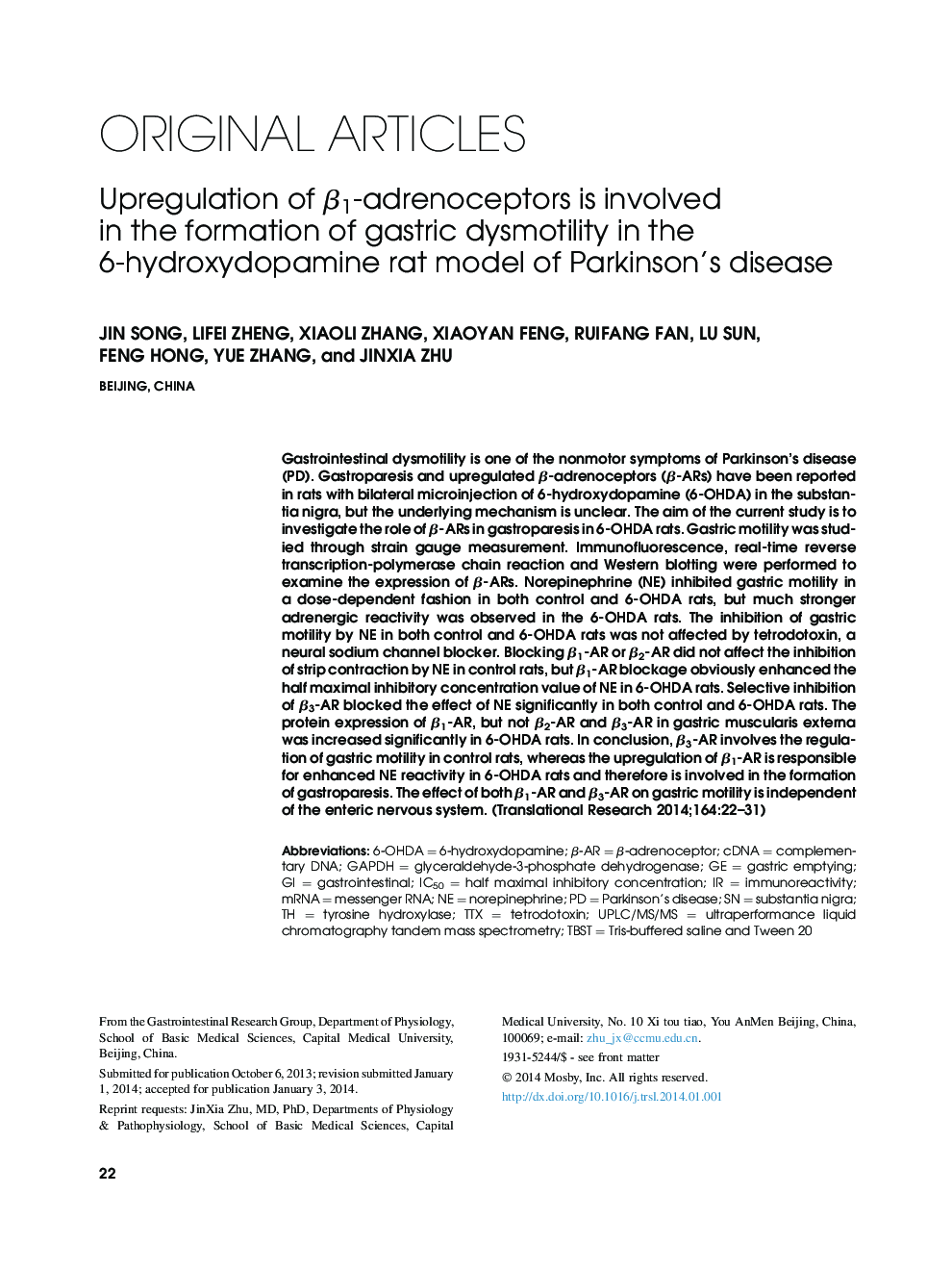| Article ID | Journal | Published Year | Pages | File Type |
|---|---|---|---|---|
| 3840046 | Translational Research | 2014 | 10 Pages |
Gastrointestinal dysmotility is one of the nonmotor symptoms of Parkinson's disease (PD). Gastroparesis and upregulated β-adrenoceptors (β-ARs) have been reported in rats with bilateral microinjection of 6-hydroxydopamine (6-OHDA) in the substantia nigra, but the underlying mechanism is unclear. The aim of the current study is to investigate the role of β-ARs in gastroparesis in 6-OHDA rats. Gastric motility was studied through strain gauge measurement. Immunofluorescence, real-time reverse transcription-polymerase chain reaction and Western blotting were performed to examine the expression of β-ARs. Norepinephrine (NE) inhibited gastric motility in a dose-dependent fashion in both control and 6-OHDA rats, but much stronger adrenergic reactivity was observed in the 6-OHDA rats. The inhibition of gastric motility by NE in both control and 6-OHDA rats was not affected by tetrodotoxin, a neural sodium channel blocker. Blocking β1-AR or β2-AR did not affect the inhibition of strip contraction by NE in control rats, but β1-AR blockage obviously enhanced the half maximal inhibitory concentration value of NE in 6-OHDA rats. Selective inhibition of β3-AR blocked the effect of NE significantly in both control and 6-OHDA rats. The protein expression of β1-AR, but not β2-AR and β3-AR in gastric muscularis externa was increased significantly in 6-OHDA rats. In conclusion, β3-AR involves the regulation of gastric motility in control rats, whereas the upregulation of β1-AR is responsible for enhanced NE reactivity in 6-OHDA rats and therefore is involved in the formation of gastroparesis. The effect of both β1-AR and β3-AR on gastric motility is independent of the enteric nervous system.
